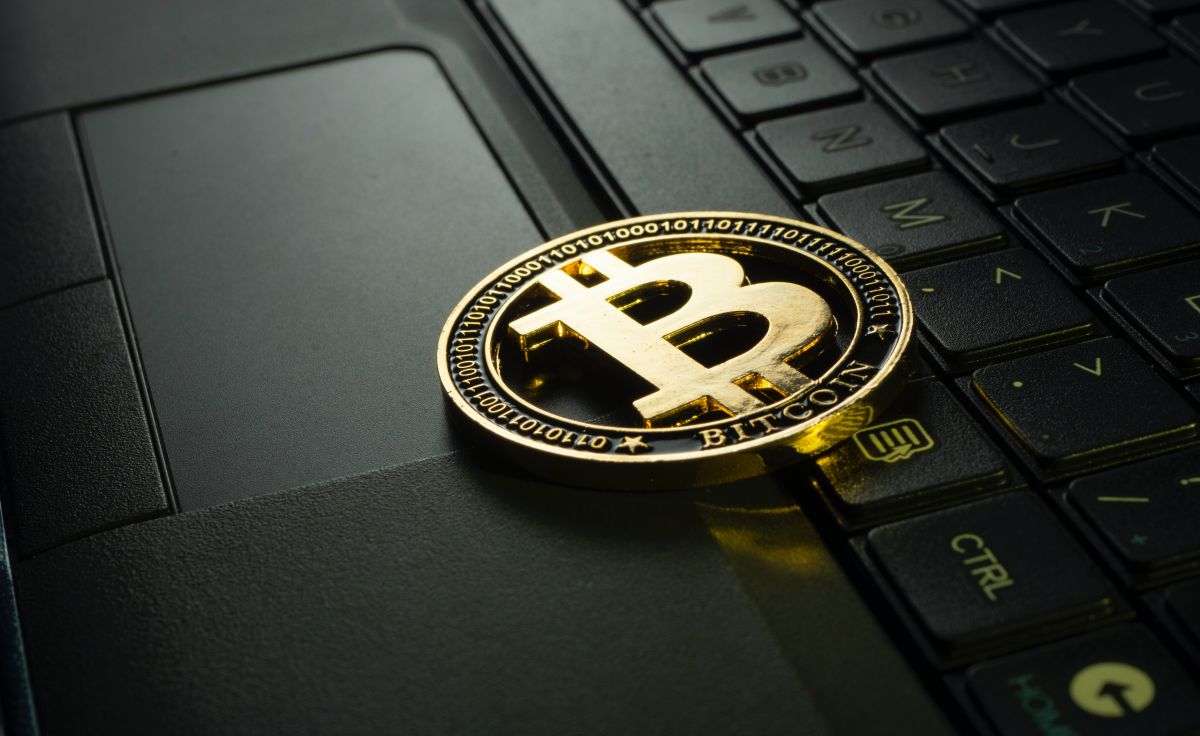What is the role of Bitcoin and what should you be aware of as we move through 2023?
In Brief
There are two predominant perspectives on Bitcoin's purpose.
Bitcoin is frequently regarded as a speculative asset, and this perception is well-founded.
When discussing Bitcoin, two primary schools of thought emerge: one asserts its chief utility is as a speculative investment, and the other posits it could potentially overshadow the US dollar as a leading global currency, owing to its decentralized framework and finite supply. As with many topics, the reality likely rests somewhere between these extremes. In this article, we will delve into the advantages and disadvantages of each viewpoint and aim to uncover Bitcoin's true purpose.

- The Original Purpose of Bitcoin
- Three important factors that could suggest a transformative year for Bitcoin in 2023.
- How can Bitcoin serve a practical purpose in the long run?
- The case for Bitcoin as a currency
- Bitcoin as a Medium of Exchange
- Bitcoin as a Store of Value
- Bitcoin vs. the dollar
- Future of Bitcoin 2023 and Beyond
- Conclusion
Bitcoin was introduced in 2009, conceived as a response to the global financial collapse. Its founders aimed to establish a new monetary system that wouldn’t be constrained by the typical regulations governing fiat currencies. Over time, Bitcoin has attracted considerable interest from investors keen on leveraging its potential for significant returns, though many still grapple with its ultimate purpose.
Two main viewpoints exist regarding Bitcoin's role. The first posits that it exists mainly as a speculative asset, susceptible to drastic price changes as new investors enter the fray. The second viewpoint suggests that Bitcoin could rise to become a global reserve currency, benefiting from its decentralized nature and limited supply.
At this stage, it's too early to confirm which perspective is accurate. Nevertheless, Bitcoin demonstrates the potential to undermine the current financial order; should it gain traction as a global reserve currency, it could profoundly influence the operations of the world economy.
The Original Purpose of Bitcoin
When Satoshi Nakamoto When Bitcoin was introduced in 2009, its creator (whose identity remains undisclosed) intended it to function as a decentralized alternative to traditional currencies. The whitepaper authored by Nakamoto highlighted a headline that read, “The Times 03/Jan/2009 Chancellor on the brink of second bailout for banks,” which inspired the development of a peer-to-peer electronic cash framework.

This indicates that Nakamoto envisioned Bitcoin as a means to present an alternative to the current financial system, which he felt was in need of reform. Sadly, since its inception, this foundational vision has often been overshadowed by a narrative that regards Bitcoin Bitcoin as merely a vehicle for speculation and avarice.
While many still hold onto the belief that Bitcoin can function as a currency, it’s tough to overlook that a significant number of Bitcoin holders treat it primarily as a speculative investment. In fact, those who see Bitcoin as a viable currency often consider it more as a store of value than as a medium for transactions.
This idea is exemplified by the reality that, after over a decade, Bitcoin is still largely impractical for everyday purchases. Its high volatility makes it challenging to use in transactions. For instance, buying a cup of coffee with Bitcoin today could yield unexpected profits or losses by the time it's served, due to the rapid price alterations.
This unpredictable nature has driven many to regard Bitcoin more as an investment opportunity rather than as a currency. You can witness this through how people describe their actions as 'investing' in Bitcoin rather than simply 'buying' it, as well as in how they utilize Bitcoin wallets. Rather than storing small amounts intended for regular use, most individuals hold substantial quantities in their wallets, hoping for future price appreciation.
However, it's essential to acknowledge that there are practical applications for Bitcoin as a means of payment. Certain niche markets do accept Bitcoin, but they are significantly outnumbered by those who mainly consider it an investment vehicle.
Three important factors that could suggest a transformative year for Bitcoin in 2023.
With several years under its belt, Bitcoin continues to showcase resilience and growth. Many experts are predicting that 2023 could usher in a substantial wave of interest and activity for this intriguing cryptocurrency. Here are three key reasons that might support this forecast.
1. Rising adoption in mainstream society. Over recent years, the number of businesses and individuals utilizing Bitcoin for transactions globally has steadily climbed. If this trend holds, we are likely to witness even broader adoption of Bitcoin throughout 2023, potentially boosting its value significantly.
2. Enhanced security measures. Bitcoin has faced several challenges regarding network security and cyber threats in recent times. However, advancements made by developers have introduced new security protocols, making the ecosystem safer than it has ever been. In 2023, we can anticipate even more robust security solutions, adding to cryptocurrency's appeal.
3. Increased traction in developing economies. Due to lower transaction fees and expedited processing times, Bitcoin is gaining a solid following in many emerging markets where traditional banking systems are lacking. As more people gain access to Bitcoin in these areas, we can expect its popularity to soar, which could further elevate its market value.
Whether you're a seasoned Bitcoin aficionado or just beginning your journey, 2023 appears to hold significant promise for this cryptocurrency. With increasing mainstream usage, fortified security, and rising appeal in developing markets, substantial gains for Bitcoin seem plausible in the years ahead.
How can Bitcoin serve a practical purpose in the long run?
Will it evolve into a stable store of value like gold? Can it function as a medium for everyday transactions similar to fiat currencies? Or does its primary function lie in its role as a speculative investment akin to stocks and commodities?

Some analysts propose that Bitcoin might eventually overshadow fiat currencies, emerging as the true global currency. In this scenario, Bitcoin would facilitate daily transactions and become a more stable asset compared to traditional money.
Conversely, other pundits foretell that Bitcoin will coexist alongside fiat currencies, serving as a form of digital gold that investors can rely on to hedge against inflation or economic downturns. In this narrative, Bitcoin would be acquired and held as a long-term investment, mirroring the way people invest in gold.
Major financial institutions like JPMorgan Chase and Blackrock perceive that Bitcoin is gradually encroaching on gold's market share. This shift indicates that some financial entities now view Bitcoin as a potential long-term store of value.
Several obstacles must be overcome before this scenario becomes reality. For starters, Bitcoin's volatility remains a concern compared to established fiat currencies, making it less suitable for everyday transactions. Scalability also poses a significant challenge, as the current Bitcoin network can process only a limited number of transactions per second, an issue that needs urgent resolution for it to function as a viable global currency.
At this point, it seems that the primary role of Bitcoin is as a speculative asset rather than a substitute for fiat money. Most Bitcoin transactions still revolve around trading rather than actual purchases of goods or services. While some merchants accept Bitcoin, they are still relatively few in number.
A frequently discussed potential application of Bitcoin is its capability to serve as a hedge against inflation. If it appears that fiat currencies are losing their value, Bitcoin could become an attractive store of wealth. Yet, it’s essential to remember that Bitcoin has historically demonstrated extreme price fluctuations, rendering it an unreliable safeguard against inflation.
Ultimately, the long-term role of Bitcoin remains uncertain. It has exhibited potential both as a speculative asset and as a prospective alternative to fiat currencies, but whether it can successfully fulfill either function over the long term is still open for debate.
The case for Bitcoin as a currency
Bitcoin Bitcoin has frequently been categorized as a speculative vehicle—and rightfully so. Prices have swung dramatically, leaving its status as a mainstream currency in question. Nevertheless, some argue that Bitcoin could play a much more significant role in the global economy than merely serving as an investment. They believe it could evolve into a universal currency, utilized across borders for daily transactions.
Several arguments support the notion that Bitcoin could rise as a universal currency.
- The decentralized nature of Bitcoin means it isn't controlled by any single government or financial entity. This characteristic greatly reduces the risk of manipulation and interference that often affect other currencies.
- Being global gives Bitcoin the unique advantage of accessibility; anyone from any nation can utilize it, making it particularly attractive for those in countries plagued by unstable or inflationary fiat currencies.
- The security and user-friendliness of Bitcoin are relatively high. Despite some notable hacking incidents involving Bitcoin exchanges, the overall security of the Bitcoin network remains robust. Plus, due to its decentralized structure, users can rest assured that their Bitcoin assets won't be frozen or seized by banks or financial institutions.
- Bitcoin's supply is capped, with a maximum of 21 million coins ever created. This fixed quantity means that it won’t be subject to the inflationary effects typically seen in traditional currencies. As a result, Bitcoin has the potential to maintain its value much more effectively than fiat currencies, which can depreciate in times of rising prices.
The future success of Bitcoin as a global monetary system is still up for debate. Currently in its infancy, it may take quite a while before it realizes its full capabilities. However, the thought of Bitcoin evolving into a significant player in the world economy is certainly captivating. It illustrates that a truly decentralized currency is achievable, contrary to what many skeptics believe. Perhaps, one day, we’ll find ourselves using Bitcoin for everyday purchases like coffee or groceries—only time will reveal how this unfolds.
Bitcoin as a Medium of Exchange
Many people are beginning to embrace Bitcoin primarily as a means of transaction. In this approach, users engage directly in trading, utilizing the cryptocurrency as a standard for their exchanges. This trend has steadily gained momentum as a growing number of individuals recognize Bitcoin as a legitimate substitute for conventional fiat currencies.
There are numerous factors that contribute to Bitcoin's appeal as a transactional medium.
- Bitcoin operates on a decentralized network, eliminating the need for a central authority to oversee its supply or distribution. This characteristic shields it from governmental manipulation, outside interference, and inflationary challenges.
- Transactions conducted with Bitcoin are both swift and economical. Typically completed in mere minutes, they also incur minimal fees. This efficiency makes Bitcoin an exceptional choice for online shopping and direct person-to-person exchanges.
- As a global currency, Bitcoin transcends borders, enabling anyone, anywhere to utilize it. This universal acceptance makes Bitcoin a powerful tool for international trade and commerce.
- With its pseudonymous nature, Bitcoin allows users to make transactions without disclosing their identities, an ideal feature for those who prioritize privacy and security.
- The programmable aspect of Bitcoin opens doors for the development of innovative applications and services that wouldn't be feasible with traditional fiat currencies.
- The scarcity of Bitcoin adds to its allure. Limited to 21 million coins, this factor makes Bitcoin a valuable asset, with its worth likely on an upward trajectory as time progresses.
- Bitcoin is built on open-source principles, meaning anyone can inspect and modify its code. This transparency fosters a decentralized and secure framework, enhancing its reliability.
- Its resilience against censorship means that Bitcoin can't be suppressed or blocked by any government or authority, making it a preferred currency choice for advocates of freedom and individual liberty.
- Moreover, Bitcoin's portability is another strength. It can be held on a smartphone, computer, or even on paper, simplifying its use.
- Bitcoin's divisibility is noteworthy; it can be broken down into smaller units, which facilitates smooth transactions.
These aspects collectively position Bitcoin as a compelling alternative for individuals exploring a new way to conduct exchanges.
Bitcoin as a Store of Value
Bitcoin is frequently compared to gold, and for good reason. Just like gold, Bitcoin maintains attributes of scarcity, durability, and portability. Additionally, its divisibility allows for practical use in transactions of various sizes. While gold may still be regarded as the ultimate store of value, Bitcoin is rapidly narrowing that gap.

When put side by side, Bitcoin and gold share similar qualities—both are rare, resilient, and easily transportable. Their divisibility further allows them to function effectively in transactions of any scale. Nevertheless, notable differences set these two assets apart.
- As it stands, Bitcoin exhibits an even greater level of scarcity than gold. Its limited issuance contrasts starkly with the estimated five billion ounces of gold that remain untapped, offering a more appealing store of value for those who prioritize scarcity.
- In terms of durability, Bitcoin significantly surpasses gold. While gold can be damaged or lost, Bitcoin remains impervious to destruction, as it's securely stored on a decentralized blockchain. Once mined, a Bitcoin retains its existence indefinitely.
- When it comes to portability, Bitcoin takes the crown. Gold is cumbersome and challenging to transport, while Bitcoin can be effortlessly stored on a small USB drive or even written down on paper. This ease of use enhances Bitcoin’s functionality as a store of value.
- Given its superior traits of scarcity, durability, and portability, Bitcoin has become a more appealing option compared to gold. It's an attractive asset for anyone aiming to shield their wealth from inflationary pressures or financial instability.
Bitcoin vs. the dollar
The ongoing discussions around Bitcoin's purpose have sparked considerable debate since it first emerged. Is investing in Bitcoin a wise choice, or should one stick with traditional currencies like the dollar? Let's delve into the advantages and disadvantages associated with both options.
Bitcoin Pros
- Bitcoin distinguishes itself from the dollar by being immune to inflationary pressures.
- The decentralized nature of Bitcoin means it operates independently of any governmental or financial entity.
- Additionally, Bitcoin allows for anonymous purchases.
- Transactions involving Bitcoin are both fast and inexpensive.
- Given its capped supply, Bitcoin is positioned to grow in value over time.
Bitcoin Cons
- Conversely, Bitcoin can often experience significant price volatility, with its value subject to sudden declines.
- Its acceptance for payments is still growing, so Bitcoin is not yet ubiquitous.
- Bitcoin's operations are not overseen by any governmental or financial body.
- Stores of Bitcoin exist within digital wallets, which may be compromised if the wallet is hacked or if the computer experiences issues.
Dollar Pros
- In contrast, the dollar is perceived as a stable investment, with value fluctuations being less dramatic than those of Bitcoin.
- Moreover, the dollar enjoys widespread acceptance as a form of payment.
- Regulation by governmental bodies and financial institutions characterizes the dollar's framework.
- Funds in dollars are generally kept in banks and may be restored if lost or stolen.
Dollar Cons
- The dollar is subject to inflation.
- The dollar's control lies with the government and financial sectors.
- Transactions made in dollars can sometimes take longer and generate higher costs.
- Unlimited dollar supply renders it less valuable as time goes on.
Finding a clear answer on the two options is challenging; each has its strengths and weaknesses. Ultimately, the choice hinges on individual preferences and willingness to accept risks.
Future of Bitcoin 2023 and Beyond
Bitcoin emerged in 2009 as a groundbreaking digital currency that sought to eliminate the reliance on centralized banks and financial systems. It functions as a decentralized, peer-to-peer payment mechanism, permitting swift and cost-effective fund transfers without intermediaries. This has contributed to Bitcoin's surge in popularity among those looking to spend or invest without facing hefty fees or slow transaction processes.
Looking ahead, what can we expect for Bitcoin? As we move through 2023, more widespread acceptance of this transformative digital currency is on the horizon. Despite recent challenges and security concerns, many industry experts remain optimistic about Bitcoin’s potential to become a mainstream payment method in the near future.
Several elements will play a role in Bitcoin's growth trajectory moving forward, including tighter regulations, enhanced security measures, and improved accessibility for users across the globe. Moreover, there is a rising interest among businesses in applying blockchain technology for varied uses, which may contribute to greater Bitcoin adoption over time.
For those involved as investors, users, or developers in the Bitcoin space, keeping abreast of the latest trends and news is crucial in this rapidly evolving industry. By monitoring emerging patterns and advancements, you can strategically position yourself for success as Bitcoin progresses.
FAQS
However, it's essential to recognize that Bitcoin investment doesn’t always neatly fit into the traditional investment mold. Due to its highly speculative nature, it’s impossible to predict with certainty how any digital currency will perform going forward.
Speculation has been a driving force behind Bitcoin's recent surges in value. A significant number of individuals are eager to invest in this cryptocurrency and are prepared to pay higher premiums to secure their share. While some motivations stem from a logical evaluation of Bitcoin’s technical underpinnings and potential applications, emotional elements significantly influence the market.
Bitcoin operates as a digital currency governed by cryptographic protocols that oversee its creation and transactions. Introduced in 2009 by the enigmatic figure or group known as Satoshi Nakamoto, it has garnered attention for its decentralization, transparency, and secure framework.
As a digital currency, Bitcoin can facilitate transactions over the internet and offers a range of benefits, making it an appealing investment avenue for individuals seeking to maximize returns on their investments. People can engage in various activities with Bitcoin, from purchasing goods and services to exchanging on trading platforms and investing in numerous products.
Bitcoin empowers individuals to conduct secure and anonymous transactions online. Unlike traditional currencies such as the dollar or euro, it operates independent of central authorities or governments.
Conclusion
Envisioning Bitcoin's future is challenging. While its potential as an investment is evident, its true value lies in its capacity to serve as a currency and enable secure online transactions. Whether or not this promise will materialize remains uncertain, but numerous experts maintain that, with ongoing development and increased acceptance, Bitcoin could emerge as a formidable player in the financial ecosystem.
Read related articles :
- What Is Bitcoin? How Does It Work?
- Understanding the Bitcoin Blockchain: An Introductory Guide
- Top 5 Crypto Lending Platforms for 2022: Insights on Rates, Types, and Risks
Disclaimer
In line with the Trust Project guidelines Please remember, the information provided here is not intended as legal, tax, investment, or financial advice in any form. Always invest only what you can afford to lose and consult independent financial advisors if necessary. For further guidance, please refer to the terms and conditions alongside the support resources provided by the issuer or advertiser. MetaversePost is dedicated to delivering accurate and impartial reporting, however, market dynamics can change without prior notice.







